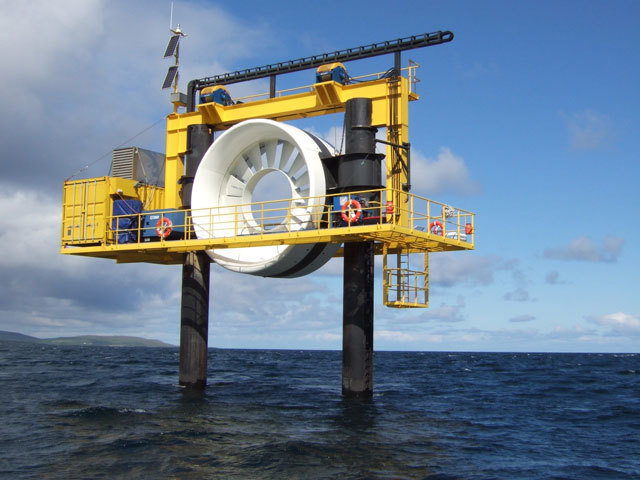
It would be fair to say that when it comes to renewables potential Scotland is up there with the world’s best.
With 25% of Europe’s tidal resource and 10% of its wave resource, coupled with decades of world renowned offshore engineering experience, Scotland has all the right ingredients to become a global powerhouse. Wave and tidal energy combined can deliver millions of pounds of investment and create thousands of jobs while playing a critical role in the fight against climate change.
If you think there is a ‘but’ coming you would be right; this potential can only be translated into gigawatts of installed capacity if a number of challenges can be successfully dealt with. A forthcoming Scottish Renewables Marine Conference, Exhibition and Dinner in Inverness in September will provide a focus for the industry to come together and discuss major issues facing the sector, including investment, access to grid, electricity market reform, manufacturing and much more.
With up to 300 delegates and 45 exhibitors at the conference, this will be a unique opportunity for leading industry figures, public sector representatives, investors and academics to put their heads together to find the best way forward for the sector.
One of the hottest topics up for discussion is how projects will connect to the grid in the near future. The majority of wave and tidal projects are still in the test and demonstration phase, but we are home to the world’s first consented tidal turbine array and the world’s largest consented commercial wave array.
In order to make the next critical step and get these commercial arrays up and running the industry needs the confidence to know that they will have sufficient grid connections in time. Chaired by Jeremy Sainsbury, director of Natural Power, and chair of SR’s Grid and MarketsWork Group, there will be a plenary session dedicated to exploring the grid challenges along with a presentation from National Grid’s Scottish Connections manager.
Transmission charges and questions around how Ofgem’s long anticipated Project Transmit will help alleviate concerns from the industry will also be explored throughout the conference.
Other highlights include a ministerial address from Fergus Ewing MSP, Minister for Energy, Enterprise and Tourism along with the annual Saltire Prize Lecture presented by Prof Peter Fraenkel MBE, co-founder of Marine Current Turbines and latest recipient of the coveted Saltire Prize Medal.
Another major challenge facing the industry, beyond that of connecting to the grid, is finance. The final session of the two-day conference will focus on ‘maximising the benefit’ and will look at ways to access finance, explore how the government is supporting new technologies as well as debate whether the financial markets are sufficiently rewarding innovation.
Max Carcus of European Marine Energy Centre (EMEC) will chair this lively session and will be joined by Angus McCrone, chief editor of Bloomberg New Energy Finance and Lucy Parsons, director of risk mitigation with NarecCapital who will both give presentations before being joined by panellists including Janine Kellett, head of offshore renewables at the Scottish Government.
Making large scale marine energy projects a reality is going to require us to take all of those natural ingredients Scotland has at its finger tips and ensure that, with the right people in place, we can bring it all together and produce a truly sustainable, world class marine energy sector.
Recommended for you
